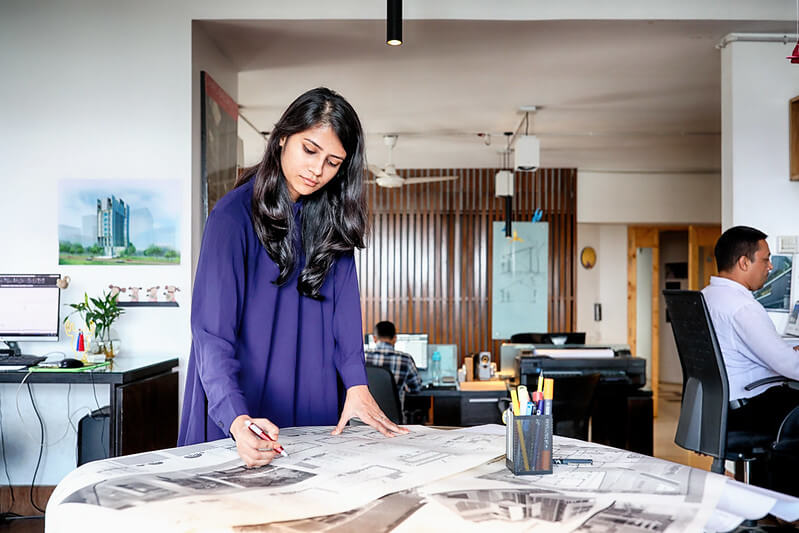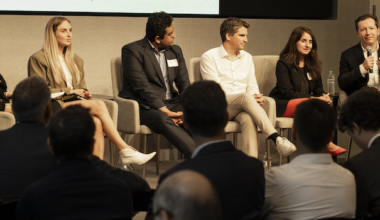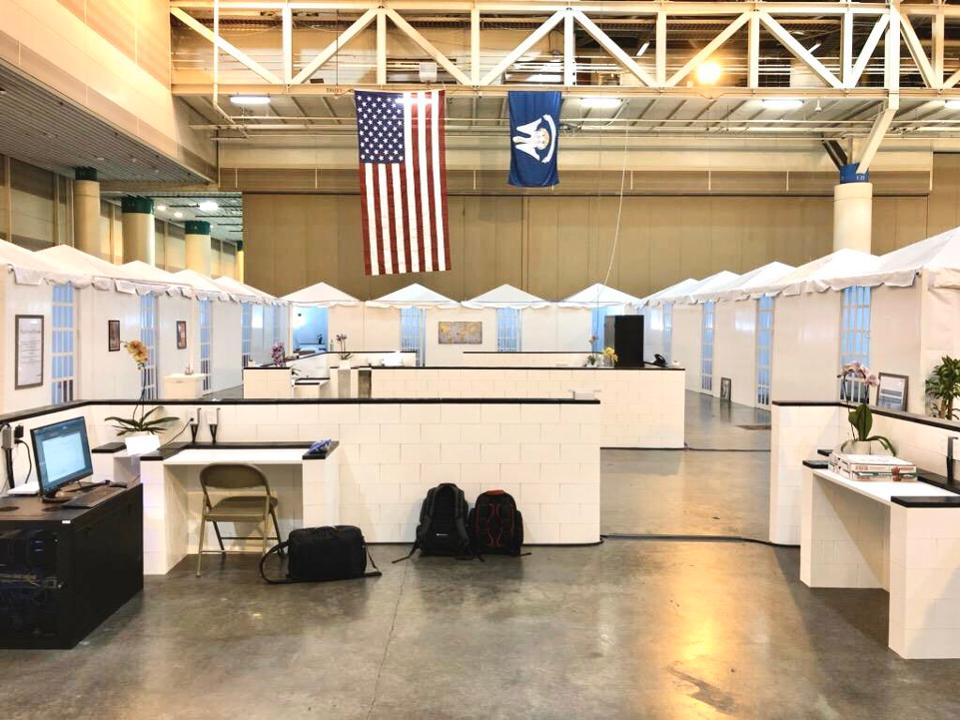Having a stable and secure job, and rising up the corporate ladder is seen as the ideal career graph for women from the Indian subcontinent, but the vast potential in the U.S. is attracting an increasing number of female entrepreneurs.
Many South Asian women have been inspired by role models, such as Durreen Shahnaz, the first Bangladeshi-origin woman to attend the Wharton Business School. In 1999, Shahnaz started an online marketplace. After the 2008 financial crisis, she founded Impact Investment Exchange (Asia), the world’s first social stock exchange, to help social enterprises and non-profits to raise funds.
Makers and breakers
Pakistan-born, Austin-based techpreneur Zaib Husain worked in corporate finance in the U.S. for several years, where she was at one point, “one of only two women on a floor of hundreds of finance professionals.” She was also inspired by the coming revolution in the fabrication and automation industries. Eventually, she created Makerarm, an all-in-one 3D printer, laser engraver, and more.

Husain describes Makerarm as “a factory on your desktop.” “Our family enjoys building things and we have always had 3D printers, laser cutters and CNC mills in our garage,” Husain says.
“It’s a lot of fun to tinker and create, and the idea for Makerarm also originated from these experiences. I wanted to design a multifunctional, low-cost machine that allows everyone to build and automate without the expense and complexity of the other equipment available in the market.”
She feels that there are many advantages to being an entrepreneur in the U.S., but thinks that women have it more difficult, especially in the technology space. “Investors need to take women led businesses more seriously,” Husain says.
“In 2019, less than 3 percent of venture capital dollars in the U.S. went to women-led companies and that number needs to go up drastically if we are hoping to put women entrepreneurs on an equal footing with their male counterparts.”
Learning to succeed
Vaibhavi Gala, an Indian-American based in Los Altos, California, moved to the U.S. in 1998 to pursue her Masters in Education at Stanford. After working in corporate education for 11 years, Gala decided to follow her passion and started Imagineerz Learning, a children’s learning company.
Gala founded the company in 2011 and started conducting summer camps for children entering grades 1 to 4. “The main idea was to help children develop a mindset of resilience, creativity and confidence,” she said. “I feel those are the skills that will help people move forward. I want children to learn these skills early on, so it becomes a part of who they are.”

With initial financial support and backing from her husband and mentors, she used existing friendship networks to grow her business. Later, she modified the program to fit a school setting. The company then started video-based programs that have been welcomed by a mix of private and public schools in the Bay Area.
While Gala admits it is easier for a woman to become an entrepreneur in California, monetizing the venture is difficult.
“When you plunge into entrepreneurship, you have to go into it for the long term, because it takes a while for things to become stable and the business to generate a consistent source of revenue,” she adds.
Gala chose to grow organically and not seek venture capital funding.
Lifestyle and wellness
While it’s too early to say whether South Asian women leaving secure jobs to start a business is a trend, a growing number of immigrant entrepreneurs are looking to bring traditional products of their home countries to the U. S.
Sajani Amarasiri, a Sri Lankan immigrant who worked in Amazon and Microsoft, launched Kola Goodies to introduce foods and herbs that she grew up eating to American health-conscious consumers.
“Nostalgia took me on a journey of rediscovering the greens, herbs and other goodies I grew up with,” Amarasiri says on her website. “I realized these foods I took for granted as a child were nutrient-dense superfoods.”
Among Kola’s powder offerings is its Super Green Latte, which is a San Francisco version of Kola Kanda, a popular green porridge that is part of a traditional Sri Lankan breakfast.
A genuine yoga business?
When it comes to lifestyle and wellness, it’s not just vegan and vegetarian superfoods that make Americans look towards South Asia. Yoga, as an industry, generates more than $16 billion annually in the United States. One of the aims of Alaknanda Nabar, who migrated to the U.S. from India in 1998, is to help Americans inculcate a more genuine yoga and meditation practice as a part of a holistic lifestyle.
Nabar, who studied architecture at Pratt Institute and did her Masters in Construction Management at New York University, worked as an architect for eight years and then for seven years in various roles at government bodies in NYC. She founded the Family of Light Holistic Center in New York in 2014.

The center uses tools such as aura photography and aromatherapy, Tibetan and crystal sound bowls, and large crystals from various parts of the world. “We help people of all ages and backgrounds to start a new path in life to achieve their goals of balancing body, mind and spirit through a holistic lifestyle,” Nabar said.
She adds that the structure of opening and operating a business in the U.S. is simple and streamlined, and the government has special programs to help minority women business owners. Nabar, however, adds, “I felt strongly against using such privileges, and operated my business without taking advantage of these benefits.”
The center’s clientele include individuals, couples, families and even corporates. “With our Holistic Corporate Wellness Programs we help companies and their employees to integrate a holistic lifestyle into their work routine and work space to reduce stress, increase productivity and efficiency as well as create a healthy environment,” Nabar says.
The center has recently expanded operations to Mexico, with a focus on lifestyle retreats and festivals, as well as to India, where they plan to work with people in the health, spirituality, and hospitality and food industries.








